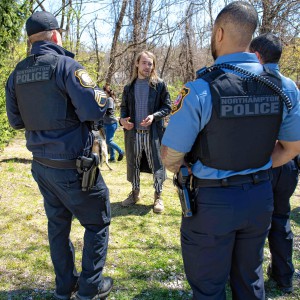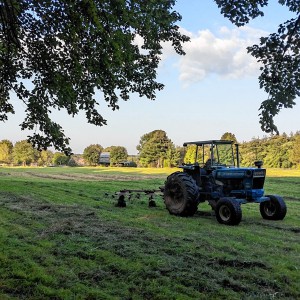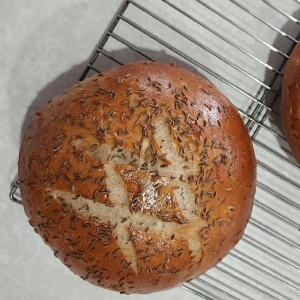Chalk Talk: By teachers, for teachers — professional development that resonates
| Published: 09-14-2023 6:20 PM |
This year, as I take on the responsibility of coordinating the Western Massachusetts Writing Project (WMWP), I along with my co-leader Chris Rea (also a frequent Chalk Talk contributor) am helping to facilitate the Summer Leadership Institute, a Writing Project program for K-16 educators. When family and friends ask me how it’s going, I yammer enthusiastically: “It’s really cool!”
This year’s five participants represent a range of contexts from Holyoke, Granby, Southwick, Northampton and Ludlow, and they teach different populations of students at different grade levels. Each participant takes on a different project that emerges from problems they identify that they’d like to work on throughout the coming school year.
This year, participants are exploring how to better facilitate meaningful discussions with 12th graders who are struggling to communicate with one another; how to create curricula that invite ninth grade mutlilingual writers into writing and ELA classrooms at a school where 80% of students are Latina/o; how to engage both higher-functioning 10th grade writers as well as those who struggle with writing; how to make mindfulness and writing part of the elementary school curriculum; and how to better engage students at a vocational/technical school more meaningfully through writing practices.
That’s the beauty of the Summer Leadership Institute and this approach. Held by teachers and for teachers, it represents one of the very best of professional development opportunities. The goal is to provide a three-tiered system of support for teachers as they develop as writers, researchers and presenters.
As a Summer Leadership Institute participant in 2019, my own experience is cloaked in warm memories. I wrote about my son, explored the pain and bewilderment of raising and helping a neurodivergent child navigate an educational system ill-equipped to support him. What emerged for me was a plea: for teachers, community members and fellow parents to better understand and work with neurodivergent kids and the unique challenges they each pose, and I hope we could avoid color-by-number rote approaches.
As a university professor and composition instructor, I was also embarking on teaching a new class focused on writing pedagogy for teacher educators, and the leadership institute afforded me the opportunity to collaborate with actual teachers in the field so that I could avoid one of the pitfalls of many university classes meant to prepare students for work in a world where professors don’t always tread: an understanding of the rooms and halls of the K-12 classrooms to which we send our university graduates.
I got to “test” my thinking with other English language arts teachers and share potential reading and writing assignments with practitioners in the field: How might this assignment work for you? Does this text give you actual insight and provide you with strategies you can use?
One of our discussions this week was based on Sarah Mervosh’s 2022 New York Times article “The Pandemic Crushed Teachers. After Uvalde, They Wonder, ‘What More?’” Tyler zeroed in on a quote by one of the teachers featured in the article who was describing what it felt like to teach post-COVID at a time when books are being challenged and banned, teachers are struggling to teach students who would rather engage with social media, there are rising crises around mental health, and teachers battle lockdowns and fear of school shootings.
Article continues after...
Yesterday's Most Read Articles
 Police report details grisly crime scene in Greenfield
Police report details grisly crime scene in Greenfield
 Super defers Amherst middle school principal pick to successor; one finalist says decision is retaliation for lawsuit
Super defers Amherst middle school principal pick to successor; one finalist says decision is retaliation for lawsuit
 Homeless camp in Northampton ordered to disperse
Homeless camp in Northampton ordered to disperse
 Authorities ID victim in Greenfield slaying
Authorities ID victim in Greenfield slaying
 Haydenville residents resist Greenway trail plan, float alternative design
Haydenville residents resist Greenway trail plan, float alternative design
 Locking up carbon for good: Easthampton inventor’s CO2 removal system turns biomass into biochar
Locking up carbon for good: Easthampton inventor’s CO2 removal system turns biomass into biochar
She explained, “It’s being literally entrusted with their lives, but not entrusted with choosing curriculum.” In response to her quote, one participant shared the sense of whiplash teachers are experiencing having been hailed as heroes at the start of the pandemic only to face intense distrust and scrutiny in the present.
In another discussion about inclusion and working with students who have such a range of needs and abilities, one participant was explaining some problems with inclusion, describing how elementary school teachers are struggling to meet these needs, and resistance to hearing this message. “We are in the trenches, you guys,” she explained. “How do I help some students write while I’m trying to protect other students from the one dysregulated one who is throwing a desk?”
In this year’s Summer Leadership Institute, seven of us K-16 English language arts teachers worked from 9 to 3, July 10-28 to engage in teacher research. Once each teacher identifies the “problem” in their English or writing classroom, they do research and propose a plan by which they will implement change throughout the 2023-24 school year. In April 2024, they will present the results of their research at the WMWP’s Best Practices in Teaching Writing Conference to be held at Westfield State University (to which, as Bruce Penniman noted in his recent editorial, the WMWP is being transferred). The WMWP is a site of the National Writing Project, one of 184 such sites that exist throughout the U.S.
We don’t have all the answers, but approaches like the one embraced by WMWP help to show a truth: Teachers need teachers, and given space and time, teachers are wonderful co-collaborators. We also need public support, more dialogue and a stronger understanding of what it looks like “in the trenches” of our specific contexts. We care deeply about learning, and many of us are invested in becoming more effective teachers.
Opportunities like the Summer Leadership Institute aren’t a panacea, but they provide an arena whereby we look critically at our practices, think collectively about adaptation and determine what is needed. We have the opportunity to explore tough questions — and try out solutions based on research — with other teachers about teaching.
Jen DiGrazia has been a professor at WSU since 2005, and teaches a wide range of composition classes. She also teaches upper-level critical writing, queer theory/literature and writing pedagogy courses for aspiring teachers. She is looking forward to merging these interests in her capacity as co-coordinator of WMWP.

 Valley Bounty: Grass-fed animals that feed the grass: Gwydyr Farm in Southampton focuses on ‘restoring the connection between land, food and people’
Valley Bounty: Grass-fed animals that feed the grass: Gwydyr Farm in Southampton focuses on ‘restoring the connection between land, food and people’ Weekly Food Photo Contest: This week’s winner: Mary Chicoine of Easthampton
Weekly Food Photo Contest: This week’s winner: Mary Chicoine of Easthampton  Speaking of Nature: A romantic evening for two birders — To hear the wonderful sounds of the Saw-whet Owl one must go outside at night
Speaking of Nature: A romantic evening for two birders — To hear the wonderful sounds of the Saw-whet Owl one must go outside at night Speaking of Nature: Where have all the birds gone?: They’re there, and here’s a handy tool to keep track of their appearances
Speaking of Nature: Where have all the birds gone?: They’re there, and here’s a handy tool to keep track of their appearances
